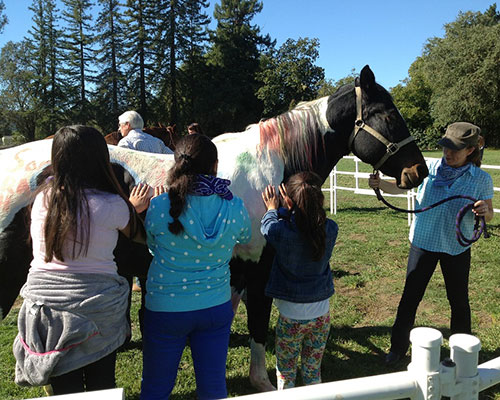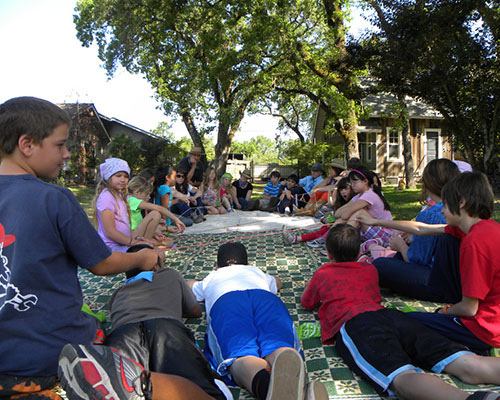JAYC School Based Workshops
Of major concern to the founder of the JAYC Foundation is the level of awareness, compassion and empathy among the school children in our communities. Because of this concern we have developed a school-based program focusing on building positive connections between middle school students with the intent that they carry it forward.
The “Just Ask Yourself To Care” (JAYC) group curriculum is intended for fourth and fifth grade students of diverse cultural and economic backgrounds. This curriculum is psycho-educational with a therapeutic component, which is strength-based and resiliency focused. The intent of the program is to support the development of empathy rather than taking the stance that we are combating the negative energy of bullying and lack of awareness. The larger goal is to create a lasting bond in our schools that transcends grade level, diverse economic and cultural backgrounds, and various learning disabilities that inadvertently keep students distant rather than close, separate rather than bonded.
The program is designed as a nine week experiential and psycho-educational group with the first session including only pertinent school staff and group leaders. A maximum of 12 fourth and fifth grade students is ideal, and are selected by teachers and staff. Students with a broad range of characteristics are chosen: varying levels of leadership skills; emphatic abilities; social skills; and developmental placement. Because of this, a variety of learning styles are incorporated into the curriculum including modeling, verbal processing and experiential activities.
In these workshops we hope to teach skills whereby the youngsters can build empathy, a sense of responsibility, and respect. The material of the program is centered around “Cow Culture”. We believe “Cow Culture” encompasses a time in history (for instance the time of the Pony Express) when people were highly interconnected, a person’s word was their promise, and honesty and integrity were necessary for survival. The curriculum is provided by mental health workers, educators and volunteers through a combination of didactic in-class presentations and off-site experiential activities.
“Honesty and integrity were necessary for survival”
SAMPLE CURRICULUM SUMMARY
Below is a sample of a JAYC School Group curriculum.
Set Up: Collaborate and Unify
Group leaders meet with school staff and introduce the program. This is an opportunity for the leaders to create a working relationship with the school staff whose support has a significant impact on the success of the program.
Week 1: Connection and Caring
Discuss why they are here, how they were chosen and why a relationship with animals can be central to learning about relationships. Discuss the meaning of connection and caring–explore differing perspectives and how one action can impact the entire group.
Week 2: Respect and Safety
Discuss the importance of respect and safety in cow-culture. Introduce emotional and physical safety. Explore interpersonal boundaries and how relationships grow with respect for the safety of others. Co-create a “handle” for each student (i.e. Sharp-eyed Susan).
Week 3: Awareness and Instincts
Guide an exercise with miniature horse to facilitate a sense of internal awareness and instincts. Discuss what it means to listen to oneself.
Week 4: Attunement (to self and others)
Students “dance with horses.” Leaders conduct an experiential exercise about sensing the movements of a horse. Discuss what it means to be attuned to your surroundings, your peers, and oneself.
Week 5: Trust and Support
Explore trusting your peers and leaders. Who will help you to mount this horse? Students learn how to accept and support, and when to trust others.
Week 6: Compassion and Creativity
Students learn that compassion is part of relationships with others. Compassion begins with the self and extends to others. Together, students create a story about two therapy animals they have met, both with disabilities, and include the vocabulary words from the last 5 weeks.
Week 7: Integrity and Empathy
Students learn about integrity and empathy in cow culture and how it was essential in the relationship between the individual and his/her horse. Integrity and empathy encompass many of the vocabulary words we have covered. To live with integrity and practice empathy is a choice and involves daily practice.
Week 8: Celebrate!
Students celebrate the conclusion of the group with certificates of completion, food, and a conversation about how they can take what they have learned and apply it in their lives.
“I promise to live with Integrity,
To have compassion for all living things,
To be aware of my Surroundings,
And Just Ask Myself To Care.”


